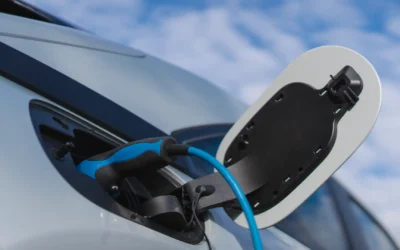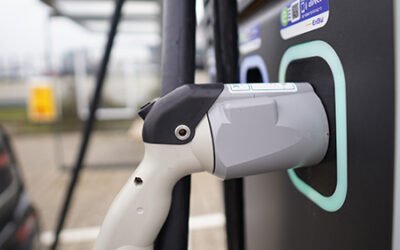- There has been a massive focus on improving the EV charging infrastructure in European countries, but charging infrastructure still has not increased at the required rate up till now.
- The residential charging infrastructure is likely to grow in the UK with the ease in the laws related to the installation of chargers in rented homes and for leaseholders.
- Policy interventions which are mandating the installation of charging infrastructure in residential units will go a long way in solving the problem.
There has been a massive focus on improving the EV charging infrastructure in European countries particularly in Western Europe, but charging infrastructure still has not increased at the required rate up till now. A major reason for this is that most of the population in Europe lives in attached houses or apartment buildings which do not have dedicated parking spaces. Certain policy initiatives have been taken in Europe specifically Western European countries including UK, Germany and Belgium to support the uptake of residential charging infrastructure in the region. This will not only support the EV market, but the efforts aimed at achieving net neutrality by 2050.

Figure 1: Distribution of population by dwelling type in UK.
Source: Eurostat

Figure 2: Distribution of population by dwelling type in Germany.
Source: Eurostat
Residential Charging Infrastructure Policies in Western Europe
Furthermore, the residential charging infrastructure is likely to grow in the UK with the ease in the laws related to the installation of chargers in rented homes and for leaseholders from 2022 onwards in which the very popular Electric Vehicle Homecharge Scheme (EVHS) which used to only cater to people living in detached homes or attached homes with terraces will now cater to the leaseholders and renters which is expected to significantly increase the residential charging infrastructure in the UK.
Similar to the UK, in Germany, a number of laws have been passed to make it easier to install chargers at multi-unit dwellings. In 2020, “Act on the Modernization of Homeownership (WEMoG )” was passed after which apartment owners and tenants can now install EV chargers in the apartment buildings. Before the implementation of this law, it was necessary for every resident of the building as well as the housing association owners to agree to the installation of the charger. Even a single vote of rejection could halt the installation of the charger. The only exception to this law is if the building is listed in monument protection (structural changes cannot be made to the building).
Another law with the name of “Building Electromobility Infrastructure Act (GEIG) ” was passed in March 2021, through which owners of the buildings are required to provide necessary line infrastructure for charging facilities in already constructed and to-be constructed buildings in Germany. The law requires charging infrastructure to be built for buildings with:
• More than 5 parking spaces in new buildings
• More than 10 parking spaces in existing buildings having renovation in more than 25 percent of the surface of the building envelope. However, there are also exceptions to this law: If the costs for charging and line infrastructures exceed 7 percent of the planned renovation, the requirements of the GEIG do not apply.
On the same lines residential charging laws are being altered in Belgium where government is working to increase the residential charging infrastructure in the country. For instance, in Flanders region from March 2021 onwards, while applying for a permit for a residential project with a minimum of two parking spaces, it is mandatory to provide a charge point or the necessary infrastructure including waiting pipes and cable ducts for installation for each parking space. Additionally, whenever a residential building that has more than 10 parking spaces is undergoing a major renovation, it is now mandatory to provide charging infrastructure with each parking space.
Looking Ahead
Lack of residential charging infrastructure significantly impacts the electric vehicle demand in the region. It was observed that the inherent nature of residential infrastructure in European countries is complicating the installation of residential charging infrastructure, so according to Power Technology Research, policy interventions which are mandating the installation of charging infrastructure in residential units will go a long way in solving the problem.
EV Charging Infrastructure Service Overview
The research presented in this article is from PTR's EV Charging Infrastructure market research. For information about this service please submit a request shown below.
Contact Sales:
More about our:
EV Charging Infrastructure Market Research
Recent Insights
Sustainability Across Sectors: Highlights from GreenTech Festival 2024
Recently, I had the privilege to attend and present at the Greentech Festival, an excellent event in the realm of sustainability. This influential...
An Evolving Market: Rise of Electric Vehicles in Europe (2023)
This infographic examines the electric vehicle (EV) market in the European region. It highlights the current and forecasted EV market size of each...
Evolution of V2G: CPOs-Automotive OEMs-Utilities at the center of transition
Evolution of V2G: CPOs-Automotive OEMs-Utilities at the center of transition [ba_advanced_divider active_element="text" title="About the Whitepaper"...


